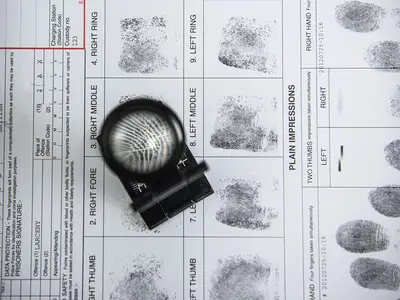Identifying evidence-based policing practices and improving public safety through research and evaluation, training and technical assistance, and data analysis
Policing is vital to ensure the safety and well-being of communities across the nation. Law enforcement officers often confront difficult situations yet must always strive to be vigilant and fair. At the same time, many agencies are understaffed, under-resourced, and serve as the first responders to a wide range of non-crime events that they are sometimes less prepared to address.
RTI experts in policing and public safety actively collaborate with federal, state, and local law enforcement agencies and other stakeholders, including community-based organizations and local government, to ensure our work has direct implications for the field and promotes evidence-based strategies. We also work internationally, focusing on Central and South America, to improve policing and the administration of justice.
Our multidisciplinary team addressing these challenges includes criminologists, law enforcement practitioners, crime and intelligence analysts, behavioral health specialists, and data scientists. These skills and experiences helps us holistically address the policing and public safety challenges facing communities.
Project Highlight
Improving data on community need and law enforcement activity
Officers respond to a wide range of issues, including many non-crime calls for service, and also initiate proactive efforts to address persistent community challenges. While the United States has had standardized crime reporting since the 1930s, collecting and documenting calls for service is not standardized across jurisdictions and no national data source exists for calls to 911 that result in a law enforcement response. As a result, we do not know the scope and types of non-crime issues that law enforcement regularly encounters at state and national levels. To address this data gap, RTI is working with the Bureau of Justice Statistics to determine if calls for service data from a range of jurisdictions can be standardized and then assembled into a nationally representative data source on calls for service data. Such a data source would give policymakers, practitioners, and researchers visibility into the types of issues and outcomes law enforcement is asked to address, particularly behavioral health issues, and provide greater context for existing crime statistics.
Project Highlight
Identifying appropriate responses to improve public safety and community well-being
Communities have increasingly relied on the police as the default responders for a range of non-crime issues over the last several decades. A significant number of 911 calls involve substance use, homelessness, and mental health – issues outside of the core function and training of many officers. As a result, community members may not receive the appropriate help or follow-up care that they need when law enforcement responds to these types of calls. RTI partnered with a cohort of cities in North and South Carolina to analyze their calls for service data. Researchers identified calls where the response could be modified or shifted to a more appropriate or alternative response than a traditional police response. The goal is that these alternative responses will more appropriately align community resources with the specific needs of the people they are serving.
Project Highlight
Understanding the impact of policy changes on public safety
As law enforcement agencies, jurisdictions, and states enact policy and operational changes to improve their communities, it is important to understand the impact of those changes on public safety, including crime and calls for service. RTI is evaluating Portland, Oregon’s Ballot Measure (BM) 110 Initiative, which decriminalized non-commercial drug possession and significantly increased funding for substance use disorder treatment and harm reduction services. Our researchers are studying calls for service and crime rates following BM 110. They are also examining how criminal legal system representatives perceive the impact of BM 110 on law enforcement in their communities and agencies.
Project Highlight
Improving crime clearance rates for fatal and nonfatal shootings
In the past few years, many U.S. cities have experienced a spike in fatal and nonfatal shootings. When these violent crimes take place, law enforcement agencies investigate and work to solve or “clear” as many of them as possible. However, on average, fewer than half of reported violent crimes are cleared by law enforcement which impacts communities and law enforcement agencies. To address this challenge, RTI International is leading the National Case Closed project, a Bureau of Justice Assistance (BJA) initiative, to improve how law enforcement agencies and their partners respond to, investigate, and successfully clear fatal and nonfatal shootings.
Project Highlight
Strengthening public safety and policing internationally
The Honduras Model Police Precinct (MPP) Project is funded by the U.S. Department of State, Bureau of Anti-Narcotics and Law Enforcement, and is implemented by RTI International. Building on the experiences of a similar project in Guatemala, the Honduras MPP team is enhancing public safety and security in the three largest cities in Honduras: Tegucigalpa, San Pedro Sula, and La Ceiba. Through the MPP Project, the team provides training, equipment, and services necessary to maintain existing, and establish new, MPPs that will serve as hubs for enhanced policing and community engagement.
Understanding Police Stress
Durham Police officers and RTI researchers discuss our efforts to analyze stress levels using wearable sensors.
Related Projects
Evaluating a Victim-Centered Approach to Policing Intimate Partner Violence
Read More about Evaluating a Victim-Centered Approach to Policing Intimate Partner Violence





























